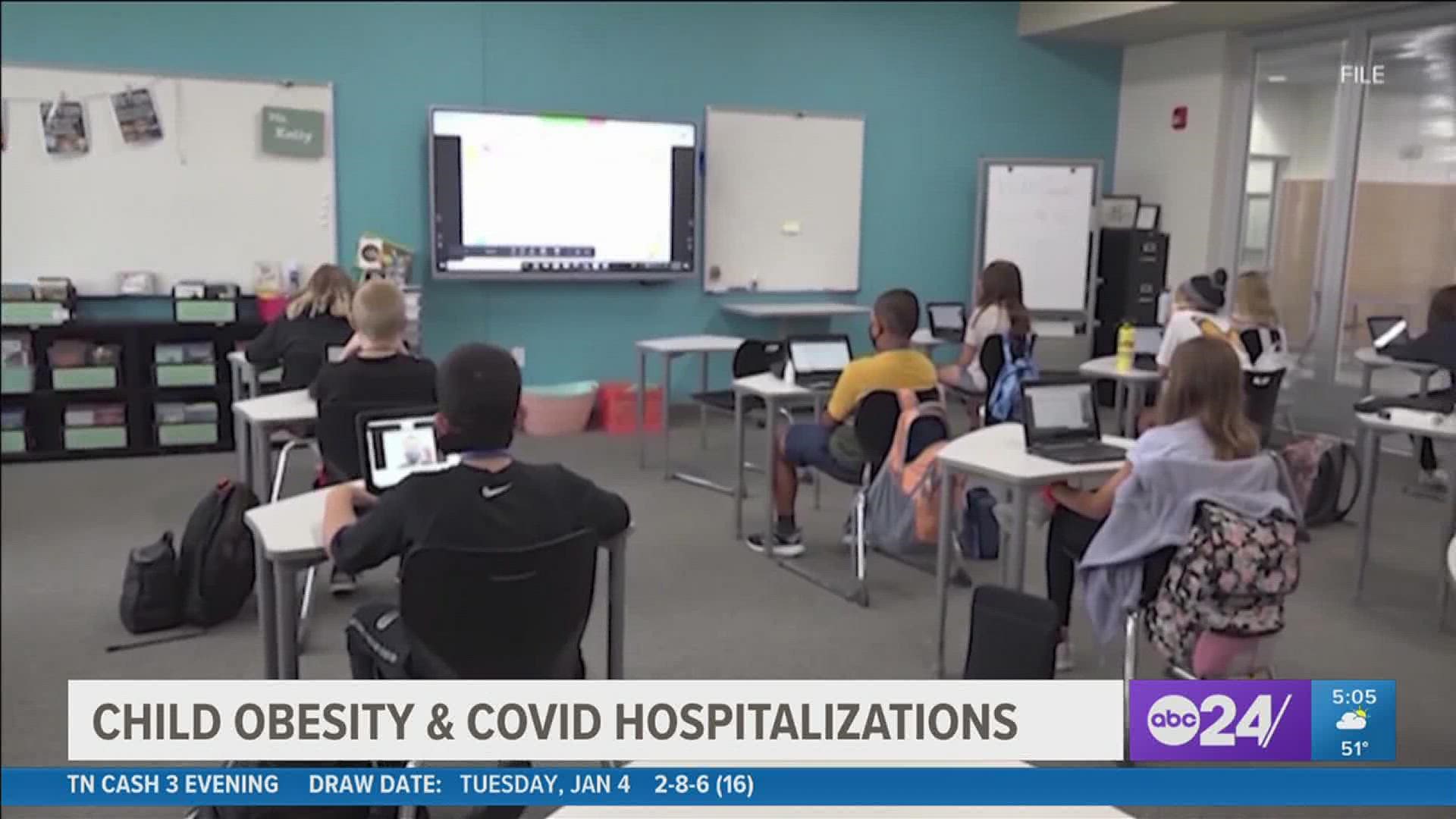MEMPHIS, Tenn. — Doctors at Le Bonheur Children’s Hospital said adults suffer more from severe illnesses related to COVID-19, and generally young kids tolerate the virus well. But there are still concerns for children dealing with obesity amid the virus.
One local doctor said she's seeing a trend with her pediatric cases - the sickest children are obese.
“BMI over 30 is considered a risk factor, that's not actually that high. A lot of people wouldn't consider themselves obese just by looking at themselves in the mirror, but if your BMI is over 30, you're considered obese and that is a risk factor,” said Dr. Sandy Arnold, Chief of Pediatrics Infectious Diseases at Le Bonheur.
A study by the Centers for Disease Control found about two-thirds of COVID-19 patients between 12 and 17 years old were obese, and the hospital stays were twice the length of non-obese children with COVID. The study was conducted from July 2021 to August 2021 and included six hospitals.
The National Heart, Lung, and Blood Institute has this breakdown of BMI.
- If your BMI is less than 18, you're underweight.
- Those between 18.5 and 24 are considered in the best range.
- If your BMI falls within the 25 to 29 range, that’s considered overweight, but not quite obese.
- Once you reach 30, you're in dangerous territory.

